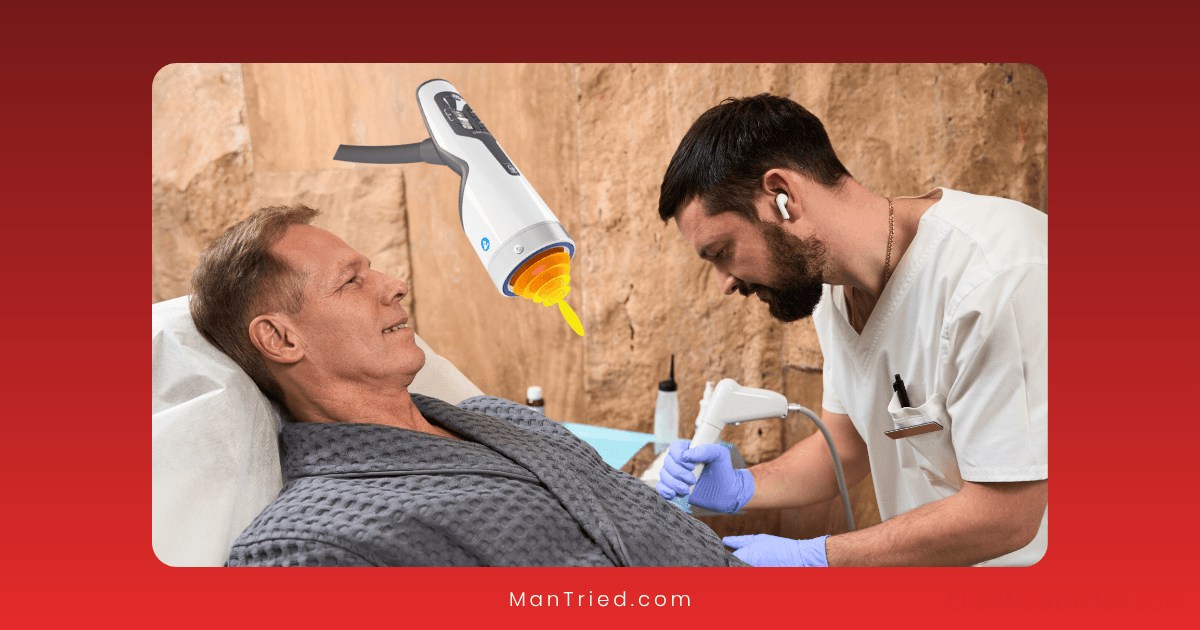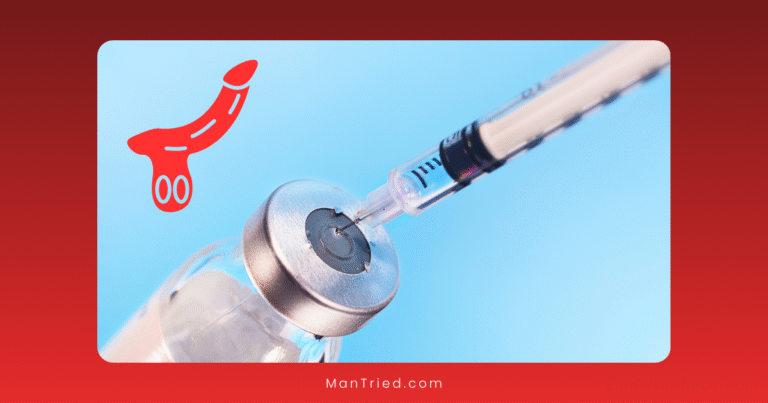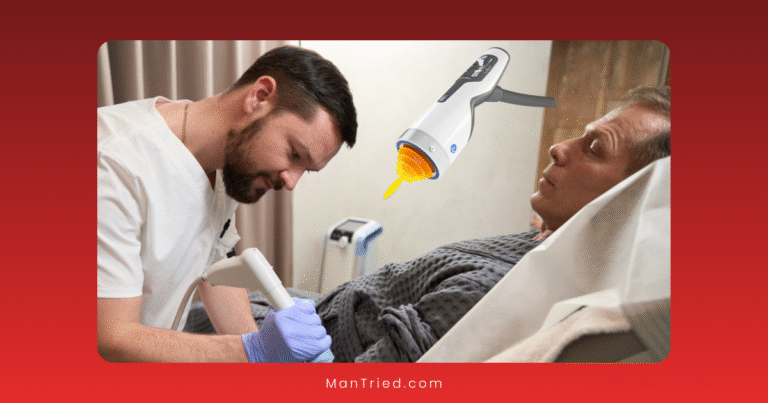The Ideal Candidate for Shockwave Therapy: Are You One?

If you’ve been struggling with chronic pain or certain medical conditions that haven’t responded to traditional treatments, you may have heard about shockwave therapy. This innovative, non-invasive treatment has gained popularity for its effectiveness in treating various conditions—from musculoskeletal issues to erectile dysfunction. But the question remains: Are you an ideal candidate for this treatment? Let’s dive into what makes someone a good fit for shockwave therapy and help you determine if it might be right for you.
What Exactly Is Shockwave Therapy?
Before we explore who benefits most from this treatment, let’s clarify what shockwave therapy actually is.
Shockwave therapy (also known as extracorporeal shockwave therapy or ESWT) uses acoustic pressure waves to stimulate healing in damaged tissues. These high-energy sound waves create microtrauma in the targeted area, which triggers the body’s natural healing response. This leads to:
- Increased blood circulation to the affected area
- Formation of new blood vessels (neovascularization)
- Release of growth factors that promote tissue regeneration
- Reduction in inflammation
- Dissolution of calcium deposits
- Stimulation of collagen production
“Unlike many treatments that simply mask pain, shockwave therapy actually addresses the underlying cause by stimulating your body’s own healing mechanisms,” explains Dr. Robert Johnson, a physical medicine specialist at the Mayo Clinic.
Who Makes an Ideal Candidate?
1. Patients with Chronic Musculoskeletal Conditions
You might be an excellent candidate if you suffer from conditions such as:
- Plantar fasciitis: Persistent heel pain that’s especially noticeable in the morning
- Tennis or golfer’s elbow: Pain on the inside or outside of the elbow that worsens with activity
- Achilles tendinopathy: Pain, stiffness, and swelling in the Achilles tendon
- Rotator cuff tendinitis: Shoulder pain that limits overhead movements
- Patellar tendinopathy: Pain in the tendon connecting the kneecap to the shinbone
- Calcific shoulder tendinitis: Pain caused by calcium deposits in shoulder tendons
According to a study published in the Journal of Orthopaedic Surgery and Research, patients with these conditions who haven’t responded to at least 3-6 months of conservative treatments often see significant improvement with shockwave therapy.
2. Men with Mild to Moderate Erectile Dysfunction
If you’re a man dealing with erectile dysfunction (ED), particularly vascular-related ED, shockwave therapy might be worth considering. The ideal candidates in this category typically:
- Have mild to moderate ED
- Have vascular-related ED (the most common type)
- Have tried or cannot tolerate PDE5 inhibitors like Viagra or Cialis
- Don’t have severe diabetes or neurological conditions
- Are looking for a treatment that might address the underlying cause rather than just symptoms
The University of Utah Health notes that “shockwave therapy is recommended for men with mild erectile dysfunction who do not respond well to medications or prefer not to take them.”
3. Patients Who Have Exhausted Conservative Treatments
One of the most common characteristics of ideal shockwave therapy candidates is that they’ve already tried standard treatments without success. This might include:
- Physical therapy for at least 3-6 months
- Anti-inflammatory medications
- Corticosteroid injections
- Bracing or supportive devices
- Rest and activity modification
“Shockwave therapy often serves as an intermediate option between conservative care and more invasive procedures like surgery,” says Dr. Michelle Garcia, sports medicine physician at UCHealth.
4. Active Individuals Seeking Non-Surgical Options
If you’re an athlete or active individual looking to avoid surgery and lengthy recovery periods, shockwave therapy might be particularly appealing. Ideal candidates in this category:
- Want to maintain their active lifestyle
- Need a treatment with minimal downtime
- Are committed to the recommended treatment protocol
- Are willing to temporarily modify activities during treatment
Who Should Avoid Shockwave Therapy?
While shockwave therapy is safe for many people, certain conditions may disqualify you as a candidate. You should likely avoid this treatment if you have:
- Blood clotting disorders or are taking anticoagulant medications
- Active infections in the treatment area
- Certain cancers, especially in or near the treatment area
- Pregnancy, particularly for treatments in the pelvic or abdominal regions
- Recently received steroid injections in the target area (typically within 6-12 weeks)
- Nerve disorders in the treatment area
- Severe osteoporosis in the treatment area
- Unstable heart conditions
What to Expect from Treatment
If you do qualify as an ideal candidate, here’s what you can expect from the shockwave therapy process:
Treatment Protocol
Most conditions require:
- 3-6 treatment sessions
- Sessions spaced approximately one week apart
- Each session lasting about 15-20 minutes
- Minimal preparation or recovery time
During the Procedure
- The practitioner will apply a gel to the treatment area to help conduct the sound waves
- The shockwave applicator is placed against your skin over the target area
- Short pulses of energy are delivered to the tissue
- You may feel mild to moderate discomfort during treatment
- Intensity can be adjusted based on your comfort level
“Most patients describe the sensation as a series of taps or pulses that may cause mild discomfort but is generally well-tolerated,” explains Dr. James Williams, physical therapist at Flawless Feet.
After Treatment
- Most people can return to normal activities immediately
- Some experience mild soreness for 24-48 hours
- It’s typically recommended to avoid intense physical activity for 48 hours after treatment
- Full benefits may take 6-12 weeks to develop as healing progresses
Success Rates and Expectations
Understanding realistic expectations is important when considering shockwave therapy:
For Musculoskeletal Conditions
Research published in the American Journal of Sports Medicine shows success rates of:
- 70-80% for plantar fasciitis
- 65-85% for tennis elbow
- 60-80% for Achilles tendinopathy
Most patients begin to notice improvement after 2-3 sessions, with continued improvement over 3-6 months.
For Erectile Dysfunction
A 2019 meta-analysis published in the Journal of Sexual Medicine found that:
- Approximately 60-70% of men with mild to moderate ED reported improvement
- Effects typically begin to appear within 1-3 months
- Some men maintain improvements for up to 2 years
- Results tend to be better in younger men with fewer comorbidities
Questions to Ask Your Provider
If you’re considering shockwave therapy, prepare to ask your healthcare provider these questions:
- Am I an ideal candidate based on my specific condition and medical history?
- What success rate do you see for my particular condition?
- How many sessions will I likely need?
- What are the costs involved, and is any portion covered by insurance?
- What specific type of shockwave device do you use?
- What results can I realistically expect?
- What are my alternatives if shockwave therapy isn’t successful?
Making Your Decision
Determining if you’re an ideal candidate for shockwave therapy involves careful consideration of your:
- Specific condition and its severity
- Previous treatments and their effectiveness
- Overall health and any contraindications
- Goals and expectations for treatment
- Financial considerations (as many insurance plans don’t cover the treatment)
“The best candidates approach shockwave therapy with realistic expectations and understand that it’s one tool in a comprehensive treatment approach,” advises Dr. Sarah Thompson, rehabilitation specialist at Cleveland Clinic.
Conclusion
Shockwave therapy offers a promising non-invasive option for many patients who haven’t found relief through traditional treatments. While it’s not right for everyone, those who match the ideal candidate profile often experience significant improvements in pain, function, and quality of life.
If you’re dealing with chronic pain or erectile dysfunction and believe you might be a good candidate for shockwave therapy, consult with a qualified healthcare provider who specializes in this treatment. They can evaluate your specific situation and help you determine if shockwave therapy is the right choice for your journey toward healing and recovery.
Have you tried shockwave therapy? Share your experience in the comments below.






